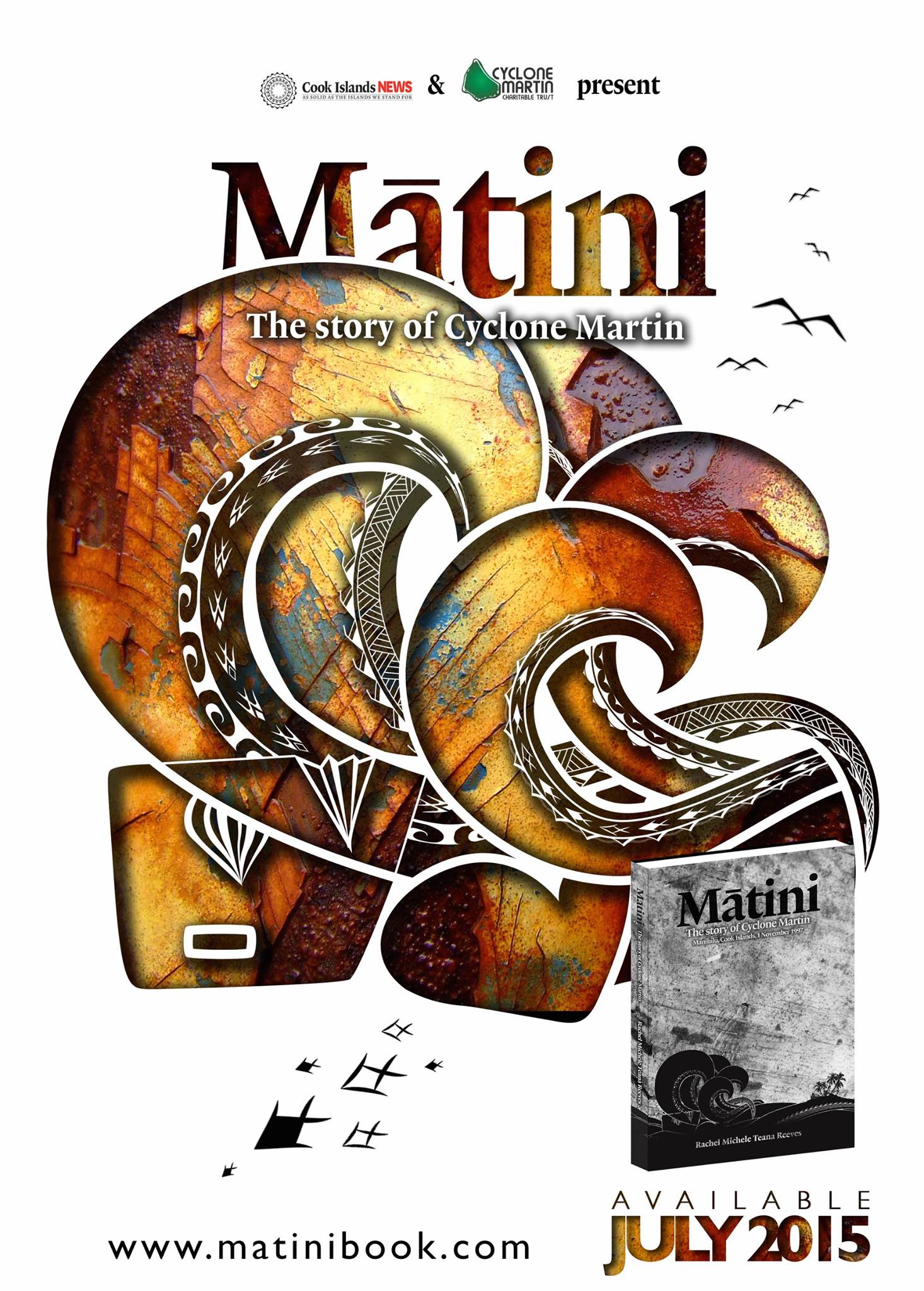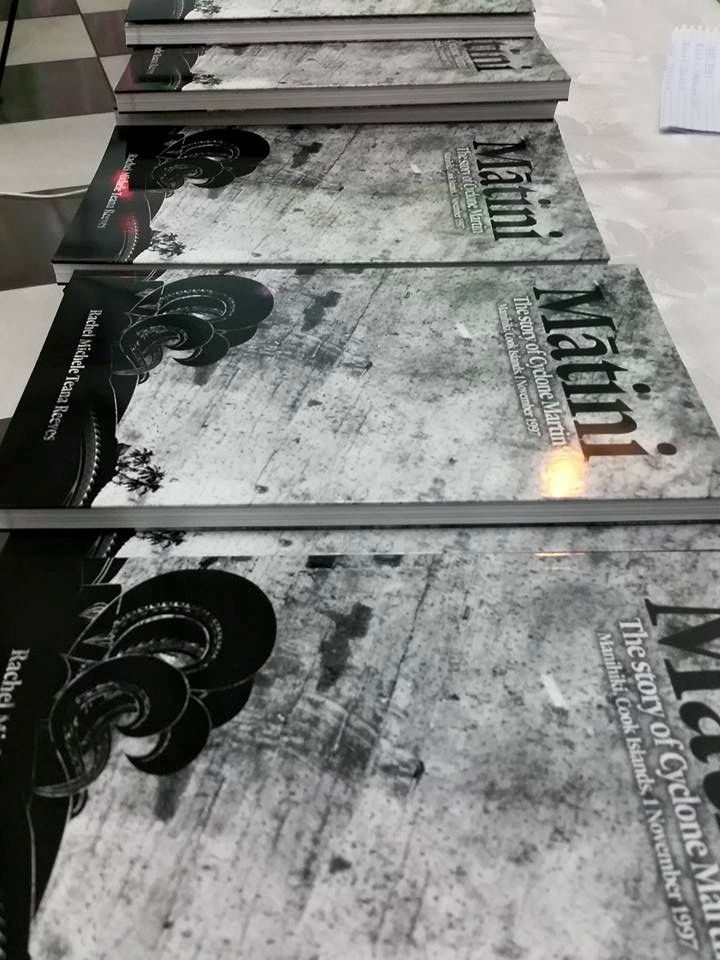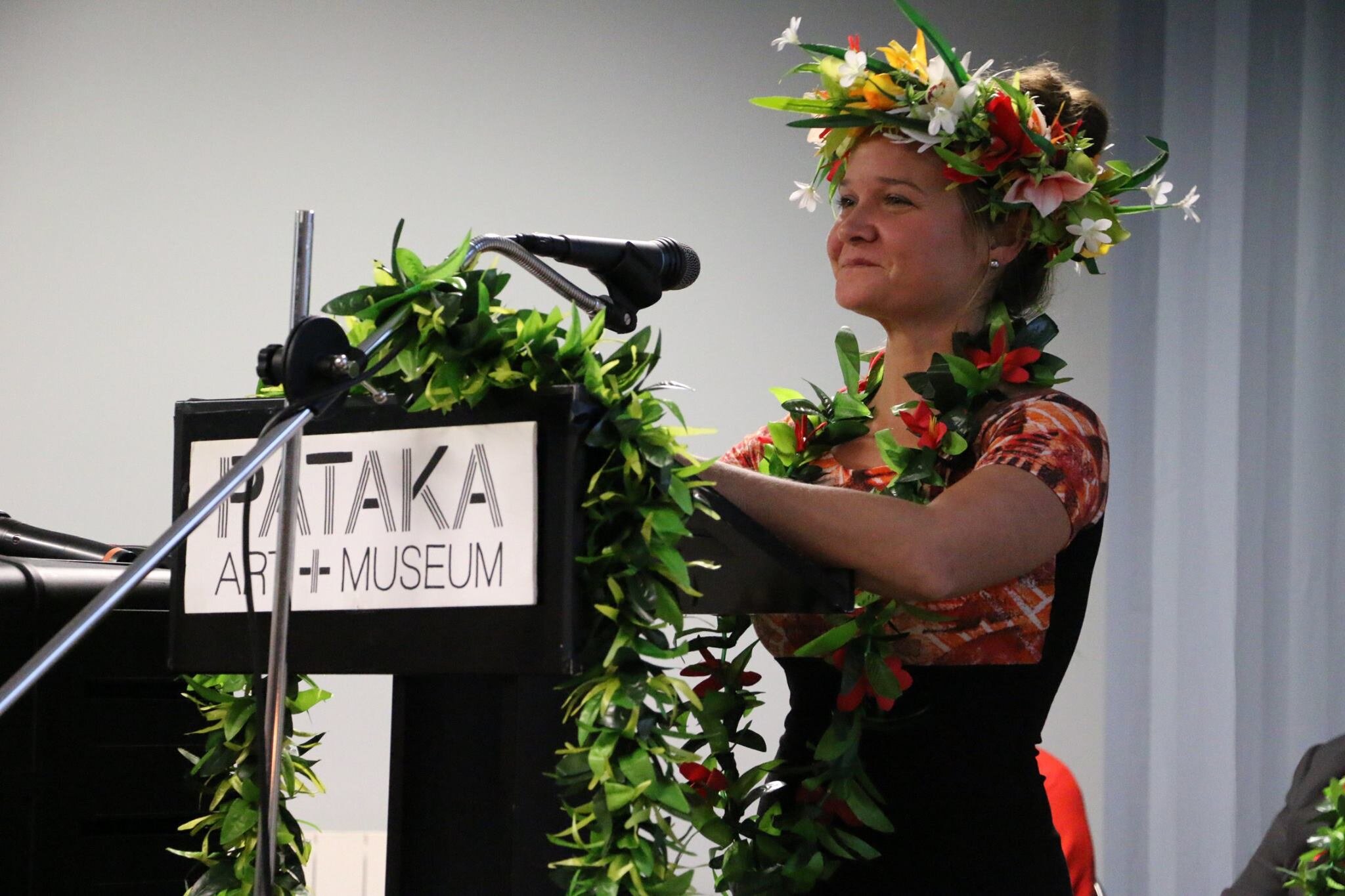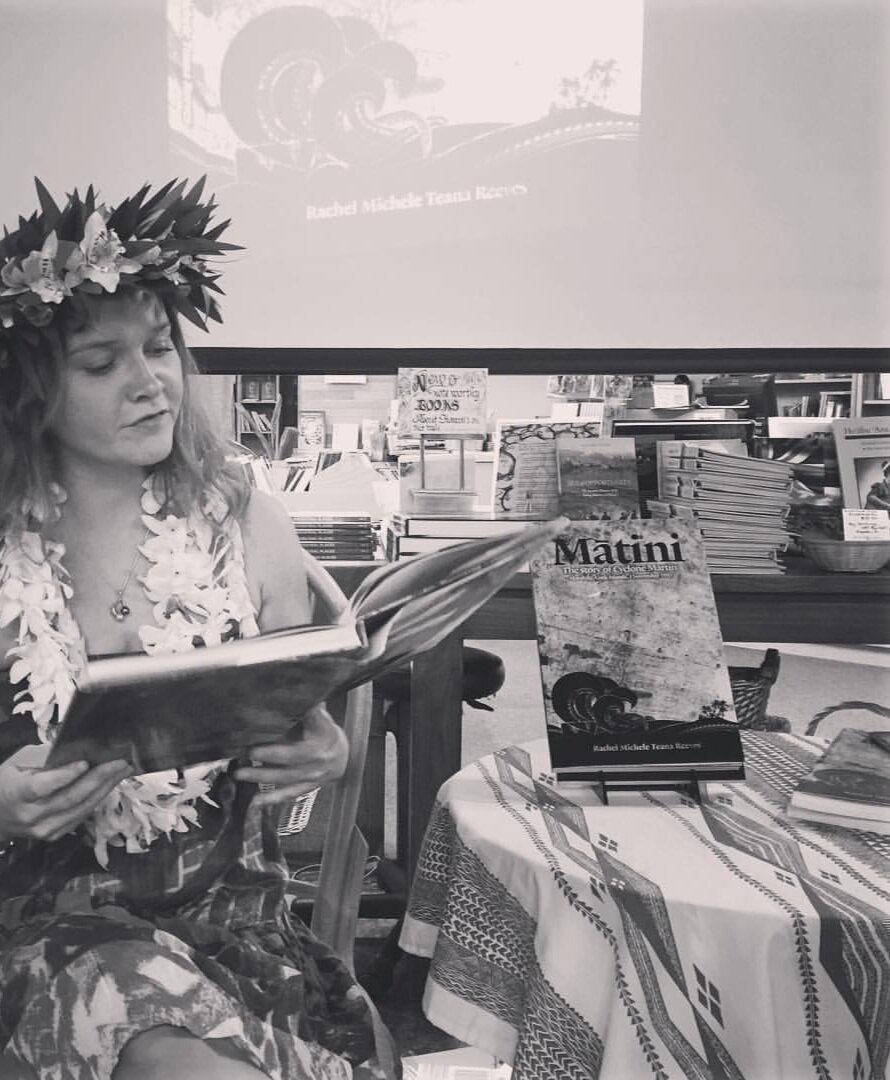Mātini tells the story of Cyclone Martin through the eyes of the people who were there, who watched as waves tall as the coconut trees broke over Manihiki, a sea-level atoll in the northern Cook Islands. On November 1, 1997, sea surge flattened two villages and ended 19 lives. In 2014, some survivors formed the Cyclone Martin Charitable Trust with the aim of fundraising for, and commissioning, a book about the cyclone. They wanted to preserve incredible stories of survival, but also to document lessons learned in order to improve disaster response in the Cook Islands and the greater Pacific region. The trustees teamed up with Cook Islands News, entering into a partnership that would carry Mātini from concept to completion. Mātini memorializes those who survived Cyclone Martin and those who didn’t. The stories in it will make you cry, give you hope, remind you to count your blessings, and inspire in you a great respect for the island people.
Click here for an excerpt.
Click here to watch a talk I gave about Mātini in March 2020.
“The book will serve as a historical record for many years to come and a reminder to all of the vulnerability of low lying islands. It may be used as an evidence based document to support our national quest on the world fora with the on-going struggle to mitigate climate change.” – Dr. Robert Woonton, former prime minister of the Cook Islands
“The first time I saw the book my body went hiroroa as we say in Manihiki meaning ‘goose bumps all over’ from the front cover to the back cover without actually reading it... It is a beautifully written book. You will not be able to resist it as the human side of disasters is so well told from the affected people and to not read it would be to deny yourself an incredible experience. Kia manuia e te katoatoa. Te Atua te aroha.” – Niki Apii-Rattle, Speaker of the Cook Islands Parliament
“The story has to be told… I believe it has to be told so people in other countries or other Pacific nations… especially the new generations can prepare… We must drum it and install it in them to be aware and be prepared for nature when it hits.” – Apii Piho, formerly Manihiki’s Member of Parliament
“This book is the only other book since ‘The Man Who Refused to Die’ to record and talk about a calamity occurring in the Cook Islands/to Cook Islanders. It’s good to know one’s history so one learns how to be better prepared next time. And there will be a next time. It was sad what happened to our people on Manihiki, and sadder still what happened (or didn’t happen) in the aftermath.” – Jean Mason, director of the Cook Islands Library & Museum Society



